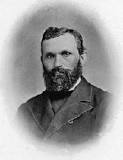A sermon preached by Christopher L. Webber at the Church of the Incarnation, San Francisco, July 28, 2019.
“If you then, who are evil, know how to give good gifts to your children, how much more will the heavenly Father give the Holy Spirit to those who ask him!” (St. Luke 11:13)
Ten years ago the Anglican Church of New Zealand produced a new Prayer Book. It got rave reviews on all sides. It’s a beautiful book: beautiful cover, beautiful pages, wonderful art work, red-edged pages in  the center so you can easy find the Eucharist and built-in book marks so you don’t lose your place when you find it. And besides all that it has almost everything not only in English but also in the Maori language.
the center so you can easy find the Eucharist and built-in book marks so you don’t lose your place when you find it. And besides all that it has almost everything not only in English but also in the Maori language.
My wife and I traveled to New Zealand eighteen years ago and we were there on September 11, 9/11, 2001. We were glad to find churches open and services to go to and a chance to use the New Zealand Prayer Book. Quite apart from 9/11, I was fascinated to see that at every service whether there were Maori New Zealanders present or not, some part of the service was always spoken in Maori and everyone seemed to know that language as well as English.
There’s one special section of the book that provides a brief and easy-to-use form of prayer for morning and evening of a seven day week. I’ve begun to use it first and last thing every day as well as the American Prayer Book Morning and Evening Prayer later in the morning and earlier in the evening. The New Zealand form for daily prayer is all in English, but there are sections provided in Maori as well and just one place where a Maori word is used in the middle of an English reading. It’s the same reading we had this morning in the Gospel and found Jesus saying, “If your child asks for a fish, will you give a snake instead of a fish? Or if your child asks for an egg, will you give a scorpion?” In the New Zealand Prayer Book those few verses come up every Monday morning as if we need to be reminded every week – and we probably do – that God knows our needs and won’t give us gifts we can’t use. But in the New Zealand Prayer Book one Maori word sneaks into the English as if it’s just one of those words everybody knows. And probably in New Zealand they do. It says, “Would any of you who are parents give your child a weta when asked for a fish?”
I guess everyone in New Zealand knows what a weta is, but I had to look it up. It’s easy to do on line. And  what I learned is that a weta is one of the world’s largest insects, often bigger than a mouse, and fierce. Go on line and you can find a video of a weta attacking a cat. No, if your child asks for a fish, you will not give them a weta. Nor will God give one to you – unless you go to New Zealand. Thank goodness!
what I learned is that a weta is one of the world’s largest insects, often bigger than a mouse, and fierce. Go on line and you can find a video of a weta attacking a cat. No, if your child asks for a fish, you will not give them a weta. Nor will God give one to you – unless you go to New Zealand. Thank goodness!
The Gospel today is about prayer. There’s nothing more important for Christians to understand than the importance of prayer. St Paul brings it up again and again: He says, “Pray without ceasing,” and he says he himself is praying constantly for the church. And it’s not so much about rewards; it’s not so much about getting something measurable or specific; it’s not about an answer to prayer that you might easily recognize. It’s about the relationship. It’s about building your relationship with God.
What kind of relationship do you have with God? I lived in a community for a number of years where people could give their children whatever they wanted, but sometimes they did that to be rid of them. “You want another toy: fine, here it is. Take it and leave me alone.” There were lots of young people in that community who had everything they wanted, but not what they needed. No, it’s not the gift that matters; it’s the relationship. And in a good relationship good things happen.
The Old Testament shows us that kind of relationship. Do you know the word “chutzpah”? Maybe you haven’t lived in Brooklyn. Look it up on line. It’s a Yiddish term for “unbelievable gall; insolence; audacity, cheekiness, crust, freshness, impertinence, impudence, insolence; the trait of being rude and  impertinent; inclined to take liberties.” For a text book example of chutzpah, read today’s passage from Genesis: It’s the story of Abraham bargaining with God. “If I find fifty righteous people in Sodom,” Abraham says to God, “will you save the city? What about forty? What about thirty? Maybe twenty? How about ten? And each time, God agrees to the bargain and each time Abraham ups the ante until finally God just walks away. But Abraham got what he wanted. He persisted. Nevertheless he persisted. And I think that’s what God wants most of all: the kind of persistence that builds a relationship. The kind of persistence that develops a pattern of prayer: Daily. Frequent. Constant. A life of prayer centered on God’s will.
impertinent; inclined to take liberties.” For a text book example of chutzpah, read today’s passage from Genesis: It’s the story of Abraham bargaining with God. “If I find fifty righteous people in Sodom,” Abraham says to God, “will you save the city? What about forty? What about thirty? Maybe twenty? How about ten? And each time, God agrees to the bargain and each time Abraham ups the ante until finally God just walks away. But Abraham got what he wanted. He persisted. Nevertheless he persisted. And I think that’s what God wants most of all: the kind of persistence that builds a relationship. The kind of persistence that develops a pattern of prayer: Daily. Frequent. Constant. A life of prayer centered on God’s will.
Will you get the gifts you want? Not necessarily. Do you always give children what they want? Not necessarily. But you will give them what they need. You will take them to the doctor for shots and you will take them to the dentist for drilling. It’s not what they want, but it’s what they need. But I am sure you will never give them a weta.
Let me tell you a story. I lived as you probably know for six years in Japan and one day I was driving in Tokyo and I took a wrong turn and got completely lost and found myself driving through a cemetery. On both sides there were the typical Buddhist shrines where ashes are placed. But suddenly I saw on my left some typical western grave stones and some with crosses on them. There wasn’t any traffic, so I pulled over and got out and took a closer look and I was amazed to see that I was standing at the grave of Samuel Isaac Joseph Schereschewsky. Now that may not be a familiar name to you but it was and is to me. It’s one of the great names in the history of the Episcopal Church.
 Schereschewsky was born in Lithuania in 1831 in a Jewish family and he was studying to be a rabbi when someone gave him a copy of the New Testament in Hebrew. He studied it and he became convinced that Jesus was indeed the promised Messiah. He went to Germany to study further and after three years he came on to the United States where he was baptized in a Baptist congregation and then went for some reason to a Presbyterian seminary in Pittsburgh to study for the ministry. But after two years there they told him, “You can’t be ordained because you’re Jewish.” So he moved on to New York and found the Episcopal seminary which accepted him without a problem. So he graduated and was ordained and volunteered to go as a missionary to China where eventually they made hm a bishop. He founded a university and began translating the Bible into Chinese but after twelve years he had a stroke that left him confined to a wheel chair. So he moved to Japan and he spent the rest of his life translating the Bible into a basic Chinese dialect using a special typewriter and pressing the keys with one finger of his partly paralyzed right hand.
Schereschewsky was born in Lithuania in 1831 in a Jewish family and he was studying to be a rabbi when someone gave him a copy of the New Testament in Hebrew. He studied it and he became convinced that Jesus was indeed the promised Messiah. He went to Germany to study further and after three years he came on to the United States where he was baptized in a Baptist congregation and then went for some reason to a Presbyterian seminary in Pittsburgh to study for the ministry. But after two years there they told him, “You can’t be ordained because you’re Jewish.” So he moved on to New York and found the Episcopal seminary which accepted him without a problem. So he graduated and was ordained and volunteered to go as a missionary to China where eventually they made hm a bishop. He founded a university and began translating the Bible into Chinese but after twelve years he had a stroke that left him confined to a wheel chair. So he moved to Japan and he spent the rest of his life translating the Bible into a basic Chinese dialect using a special typewriter and pressing the keys with one finger of his partly paralyzed right hand.
Bishop Schereschewsky died in 1906, and toward the end of his life he told a visitor: “I have sat in this chair for over twenty years. It seemed very hard at first. But God knew best. He kept me for the work for which I am best fitted.” God did not give him a weta. Nor did God give him a stroke. But God gave him great gifts as a linguist and translator and the perseverance to use those gifts.
If you know how to give your children good gifts, how much more will your heavenly Father. So pray for the gifts God is wise enough to give and pray for the wisdom to use them well.